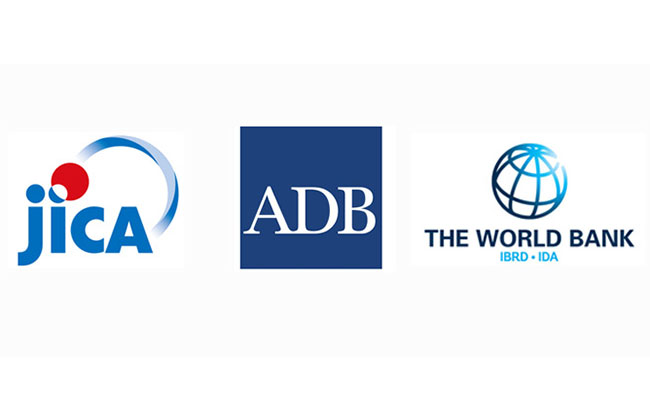June 26, Colombo (LNW): Three of Sri Lanka’s most prominent development partners in the energy sector—the Asian Development Bank (ADB), the Japan International Cooperation Agency (JICA), and the World Bank—have formally raised concerns regarding key provisions in the proposed amendments to the Electricity Act of 2024.
The issues, they caution, could compromise critical reforms aimed at ensuring transparency, efficiency, and long-term sustainability in the country’s electricity sector.
In a detailed letter addressed to Energy Minister Eng. Kumara Jayakody, the institutions expressed appreciation for the government’s sustained dialogue and cooperation on power sector reforms. However, they flagged specific aspects of the draft legislation, which was recently published in the Government Gazette and is now before Parliament for consideration, as potentially detrimental to the original reform agenda.
At the heart of their concern is the risk that certain amendments could stall private sector participation, reintroduce inefficiencies, and erode the independence of key institutions meant to oversee pricing and regulation. The lenders stress that their observations are offered constructively and in support of building a resilient and investor-friendly energy system.
One major point of contention is a provision stipulating permanent state ownership of key energy entities, including the proposed Generation and Distribution Companies. While the lenders acknowledged the logic in retaining full state control over some entities such as the National System Operator (NSO) and the Pension Liabilities Company, they warned that embedding permanent government ownership in legislation would limit flexibility, deter private capital, and burden the Treasury in a sector with high capital demands.
Another concern relates to the proposed structure of the National Transmission Network Service Provider (NTNSP). The draft law includes companies such as LTL Holdings and Sri Lanka Energies under the NTNSP. These firms operate not just in transmission, but also in power generation, equipment manufacturing, and other engineering services—raising fears that consolidating these mixed operations under a single transmission authority would blur functional boundaries and dilute reform efforts aimed at unbundling the sector to remove conflicts of interest.
The preliminary transfer of the Lanka Electricity Company (LECO) to the newly created Distribution Company also raised red flags. The lenders noted that LECO has historically operated as a relatively efficient and autonomous distribution firm. Folding it into a larger entity without a proper assessment of commercial and legal implications could reverse some of the progress made in improving service delivery and efficiency.
Additionally, the amendment regarding tariff setting authority was singled out as problematic. The revised wording shifts the requirement from the regulator acting “in accordance with” a national tariff policy to acting “in consultation with” the Ministry of Finance—language which the lenders argue introduces ambiguity over decision-making power and opens the door to undue political influence. They warn that this change could lead to confusion over who holds final responsibility for tariff decisions, potentially sparking legal disputes and undermining the regulator’s independence.
The institutions underscored that the proposed changes, if enacted without revision, could undermine the commitments Sri Lanka has made under its agreements with both ADB and the World Bank, particularly in relation to improving governance, enabling competitive procurement, and establishing a sustainable pricing framework. They also cautioned that these moves might send the wrong signals to investors at a time when the country is seeking to rebuild economic confidence.
In concluding their letter, signed jointly by the heads of each agency’s Sri Lanka office, the development partners urged the government to reconsider and revise the contested clauses in a manner consistent with the broader aims of the Electricity Act—namely, delivering reliable, affordable electricity through efficient governance and sound financial management.

